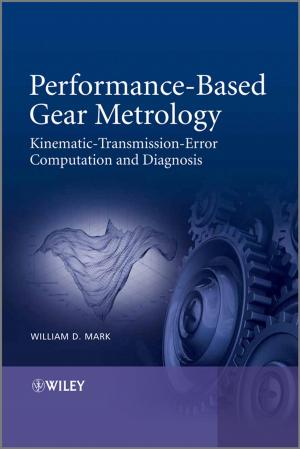Protein Chaperones and Protection from Neurodegenerative Diseases
Nonfiction, Science & Nature, Science, Biological Sciences, Biochemistry| Author: | Vladimir Uversky | ISBN: | 9781118063897 |
| Publisher: | Wiley | Publication: | September 9, 2011 |
| Imprint: | Wiley | Language: | English |
| Author: | Vladimir Uversky |
| ISBN: | 9781118063897 |
| Publisher: | Wiley |
| Publication: | September 9, 2011 |
| Imprint: | Wiley |
| Language: | English |
How protein chaperones protect cells from neurodegenerative diseases
Including contributions from leading experts, Protein Chaperones and Protection from Neurodegenerative Diseases provides an in-depth exploration of how protein chaperones are involved in shielding cells from toxic aggregated or misfolded protein states that cause ALS, Parkinson's, and related diseases.
Examining how different protein chaperones ameliorate the toxicity of proteins that are known to cause neurodegenerative damage, the book addresses both research and clinical perspectives on chaperone and anti-chaperone properties. The intersection of molecular chaperones and neurodegeneration is an intensely studied area, partly because of the potential for manipulating the expression of molecular chaperones to thwart the progression of debilitating diseases, and partly because of the ever-aging global population.
Discussing the potential to harness the power of protein chaperones, and future directions for research, discovery, and therapeutics, this book is essential reading for scientists working in the fields of biochemistry, molecular medicine, pharmacology and drug discovery, biotechnology and pharmaceutical companies, advanced students, and anyone interested in this cutting-edge topic.
How protein chaperones protect cells from neurodegenerative diseases
Including contributions from leading experts, Protein Chaperones and Protection from Neurodegenerative Diseases provides an in-depth exploration of how protein chaperones are involved in shielding cells from toxic aggregated or misfolded protein states that cause ALS, Parkinson's, and related diseases.
Examining how different protein chaperones ameliorate the toxicity of proteins that are known to cause neurodegenerative damage, the book addresses both research and clinical perspectives on chaperone and anti-chaperone properties. The intersection of molecular chaperones and neurodegeneration is an intensely studied area, partly because of the potential for manipulating the expression of molecular chaperones to thwart the progression of debilitating diseases, and partly because of the ever-aging global population.
Discussing the potential to harness the power of protein chaperones, and future directions for research, discovery, and therapeutics, this book is essential reading for scientists working in the fields of biochemistry, molecular medicine, pharmacology and drug discovery, biotechnology and pharmaceutical companies, advanced students, and anyone interested in this cutting-edge topic.















